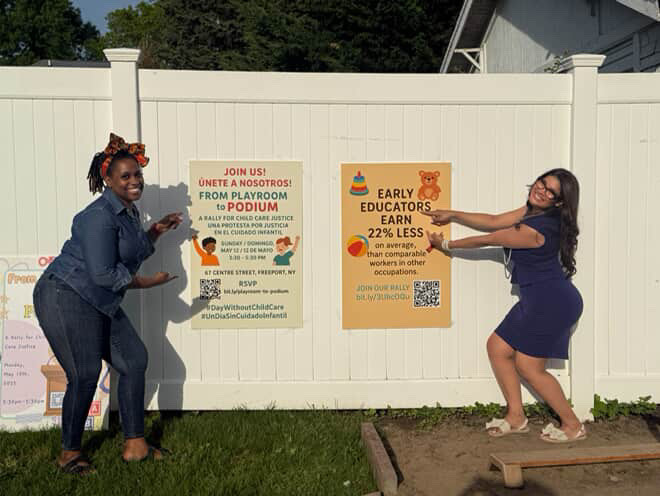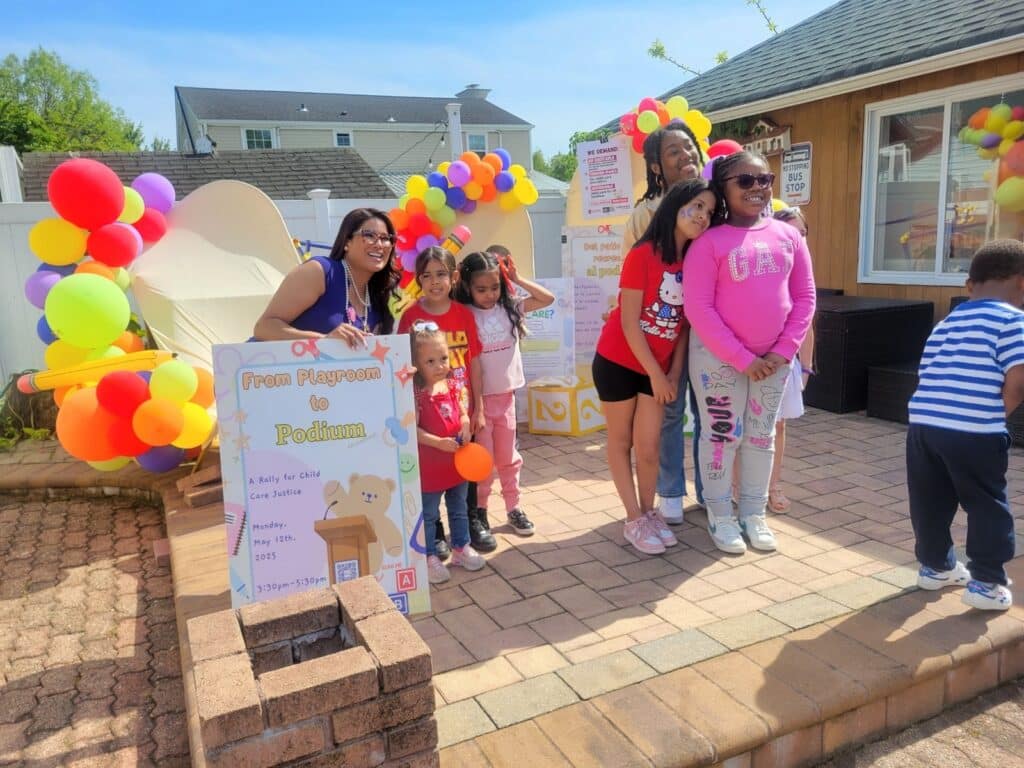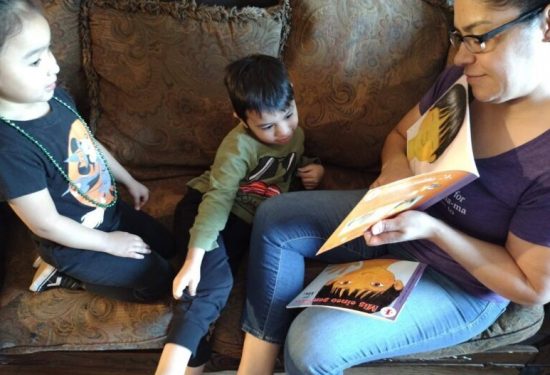When Kelly Baker was a toddler in Huntington, West Virginia, back in the ‘90s, she loved going to Ms. Kathy’s family child care. Decades later, Kelly truly joined Ms. Kathy’s family; she married Kathy’s son and they started a family of their own. “My kids have grown up with Ms. Kathy, too,” she says. “They have great friendships with the other kids, they invite each other to sleepovers, and now they’re in school together. You can’t put a price on the relationships that happen in family child care because it’s the same person – a second mom – taking care of your kids from infancy to when they go to school or even after school.”
Kelly Baker isn’t alone in her praise for family child care. Across the country, millions of parents choose a home-based child care setting for their children, making it the most common form of child care for all children. In fact, 30% of infants and toddlers attend home-based care, compared to just 12% in centers. It’s especially preferred by working parents who have jobs outside of a traditional 9-5 schedule. Parents like Kelly, who understand that home-based child care is high quality, affordable, and accessible, are the greatest champions for home-based child care.
This month, some of those parents shared their support publicly. On May 12, parents, providers, and community advocates marked A Day Without Child Care, championing home-based child care at rallies, town hall meetings, and in conversations with legislators and community leaders.
Regina Frisco, mother of two children in The Bronx, New York, sends both of her children to Berta Sanchez’s My Kiko’s group family day care, which is just down the street from her home. “I fell in love with the way they work with the children and the way they work together as a family and staff. These are people I trust with my kids and who treat me as family, too.” Frisco notes that her daughter has learned American Sign Language and Spanish from Sanchez, and her son, who is on the autism spectrum, has received multiple special education services from specialists who partner with Sanchez to serve children with special needs.
Increasingly, parents are advocating for policy reform alongside providers in their communities, states, and nationally. Kelly Baker got her start as an activist in an online moms-to-moms group where she shared her experience as a mom and, now that her own children are in school, as a teacher in family child care. “A lot of people don’t really know about family child care,” she says, “because the centers are just more familiar. They don’t understand how the continuity of care and the small, family atmosphere where things look like a home and parents are super involved really make a difference for kids.”
Recently, Baker attended a town hall meeting with city council members and legislative candidates. “One of the things they didn’t understand is that birth to 2 child care is funded differently than Head Start or pre-K. Because we’re under Health and Human Services and not the Department of Education, our teachers don’t get health insurance, they don’t have substitutes, they don’t get the same financial support. Family child care is the foundation that sets kids up for success in Pre-K. They are the women who notice developmental problems even before kids get to school, and they deserve the same support as other programs.”
Among the people Baker talked to that day was Josh Mathis, a candidate for the West Virginia Senate, who has six children. “He’s one of the people who didn’t really know about family child care and how it is underfunded. But after the event, he reached out to Kathy [Baker] and said he had a better understanding now and would consider lending his support to our ideas.”
The Day Without Child Care initiative has gained steam every year since it started in 2022, according to Janna Rodriguez, a family child care provider and founding member of Childcare Changemakers in New York. For this year’s event, as parents, providers, and activists began their rallies, parents of children who attend Benu Chhabra’s family child care in the Bay Area of California, began the day at Chhabra’s home in conversation with city council members, and then attended a rally together, some with their children in tow. One of those parents is Kelsey Anderson, a small business owner herself, who says, “Benu and other family child care providers give so much more than they are paid for. Showing up for her feels rewarding and important. If that’s also helping other family child care providers, then we parents should definitely be a part of that because their work and care and love are what make it possible for us to work in our business and know that our kid is thriving, which means our family is thriving, too.”


Janna Rodriguez agrees. “We need the parents to come alongside us. We need child care providers from every setting. And we need to talk to leaders from every ideological perspective because child care is critical for our workforce. It’s critical for the development of our children. We need a cohesive and inclusive system that supports all kids and all families and all providers. And when we work together and speak with one voice, we’re closer to building a child care infrastructure that works for everyone.”



